The legal hotline for media workers working or planning to work on the front line receives questions not only of a local nature but also of a general nature. Tetiana Uralova, an expert on the safety of journalists of the Network of Journalists’ Solidarity Centers (JSC) of the National Union of Journalists of Ukraine (NUJU), answers the question.
“I soon plan to go on a business trip to the east of Ukraine. He received the accreditation of the Armed Forces of Ukraine (AFU). But I have no experience communicating with representatives of military units, and I have no contacts either. Can I apply to the NUJU to get phone numbers in the area of responsibility in which I plan to work? And can I get protective equipment if I’m not a member of the NUJU?”
- As for the first question, yes, the NUJU helps journalists who have received the accreditation of the AFU to establish communication with the Defense Forces of Ukraine.
- With the support of the International and European Federations of Journalists, as well as UNESCO, to help media representatives working in Ukraine during the war, the NUJU has created six JSCs. The Centers operate in Kyiv, Lviv, Ivano-Frankivsk, Kharkiv, Zaporizhzhia, and Dnipro and provide journalists with organizational, technical, legal, psychological, and other types of assistance.
- As for protective equipment, the answer is also positive: at the JSCs of the NUJU, branded bulletproof vests, helmets, and tactical first-aid kits can be used by all Ukrainian and foreign journalists who have to work in dangerous conditions. To do this, you need to fill out the appropriate form on the website of the NUJU, in the Journalists’ Solidarity Center
- Besides, the NUJU regularly conducts special training sessions for journalists, in particular, on tactical medicine and providing first aid.
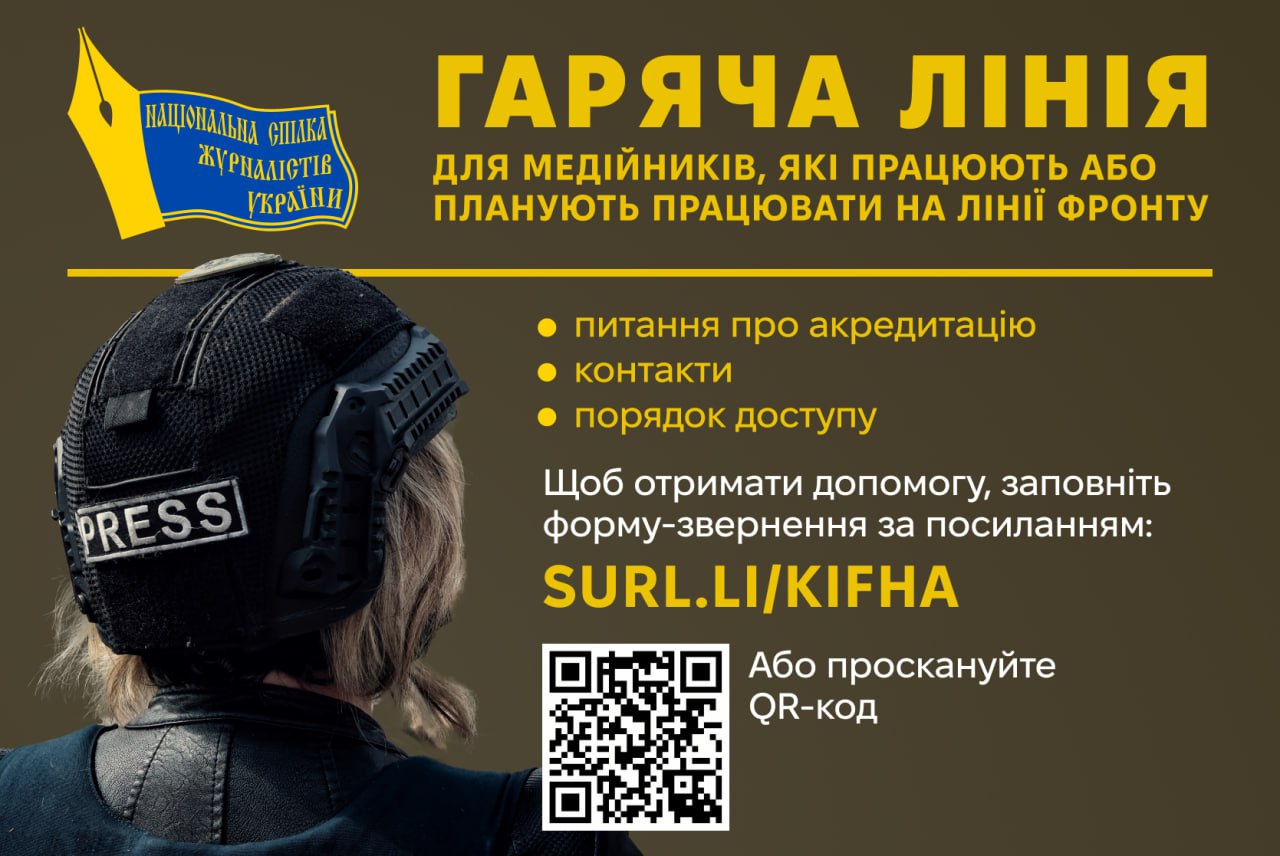
REFERENCE INFORMATION
As earlier reported, the NUJU has created a hotline for media workers who work or plan to work on the front line. Journalists can address all issues related to obtaining the accreditation of the AFU, as well as provide suggestions for improving work in the combat zone.
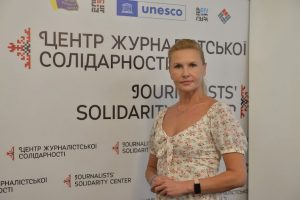
The curator of the hotline is Tetiana Uralova, an expert on the safety of journalists of the JSC network.
The hotline can be used by all media workers, including those who are not members of the NUJU. To get help, you need to fill out the application form at the link.
There is also a legal hotline for journalists and mass media under the auspices of the JSC network with the support of UNESCO and the International and European Federations of Journalists. As part of the program, media workers can get the necessary legal support. For media workers, the service is free and available from any region or country where media workers are located.
You can apply by filling out a special FORM.
It is necessary to indicate contact data, the name of the mass media in which the media person works, the region of residence, briefly outline the content of the appeal, and provide information that will help lawyers understand the essence of the issue and provide assistance.
About NUJU
The National Union of Journalists of Ukraine (NUJU) is the largest journalistic organization in Ukraine, which unites 18,000 members and has regional organizations in each region. With the beginning of Russia’s full-scale war against Ukraine, the NUJU directed its actions to help Ukrainian journalists. In particular, Ukrainian media workers can receive protective equipment for work in the combat zone, as well as financial and psychological assistance.
ABOUT JSC
The Journalists’ Solidarity Centers is an initiative of the NUJU implemented with the support of the International and European Federations of Journalists and UNESCO. The initiative is designated to help media representatives working in Ukraine during the war. The Centers operate in Kyiv, Lviv, Ivano-Frankivsk, Chernivtsi, Zaporizhzhia, and Dnipro and provide journalists with organizational, technical, legal, psychological, and other types of assistance.
ABOUT UNESCO
UNESCO is the United Nations Educational, Scientific, and Cultural Organization. It contributes to peace and security by promoting international cooperation in education, sciences, culture, communication, and information. UNESCO promotes knowledge sharing and the free flow of ideas to accelerate mutual understanding. It is the coordinator of the UN Action Plan on the Safety of Journalists and the Issue of Impunity, which aims to create a free and safe environment for journalists and media workers, thus strengthening peace, democracy, and sustainable development worldwide. UNESCO is working closely with its partner organizations in Ukraine to provide support to journalists on the ground.
The designations employed and the presentation of material throughout this digest do not imply the expression of any opinion whatsoever on the part of UNESCO concerning the legal status of any country, territory, city, or area or its authorities or concerning the delimitation of its frontiers or boundaries.
The authors are responsible for the choice and the presentation of the facts contained in this digest and for the opinions expressed therein, which are not necessarily those of UNESCO and do not commit to the organization.

 THE NATIONAL UNION OF
JOURNALISTS OF UKRAINE
THE NATIONAL UNION OF
JOURNALISTS OF UKRAINE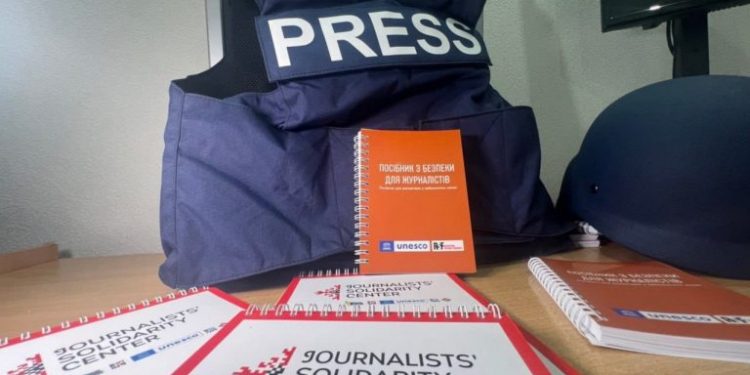
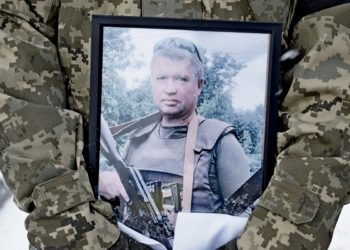

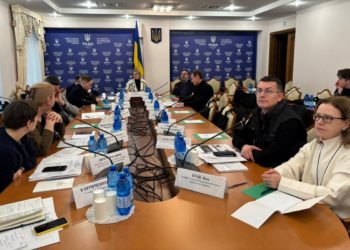












Discussion about this post